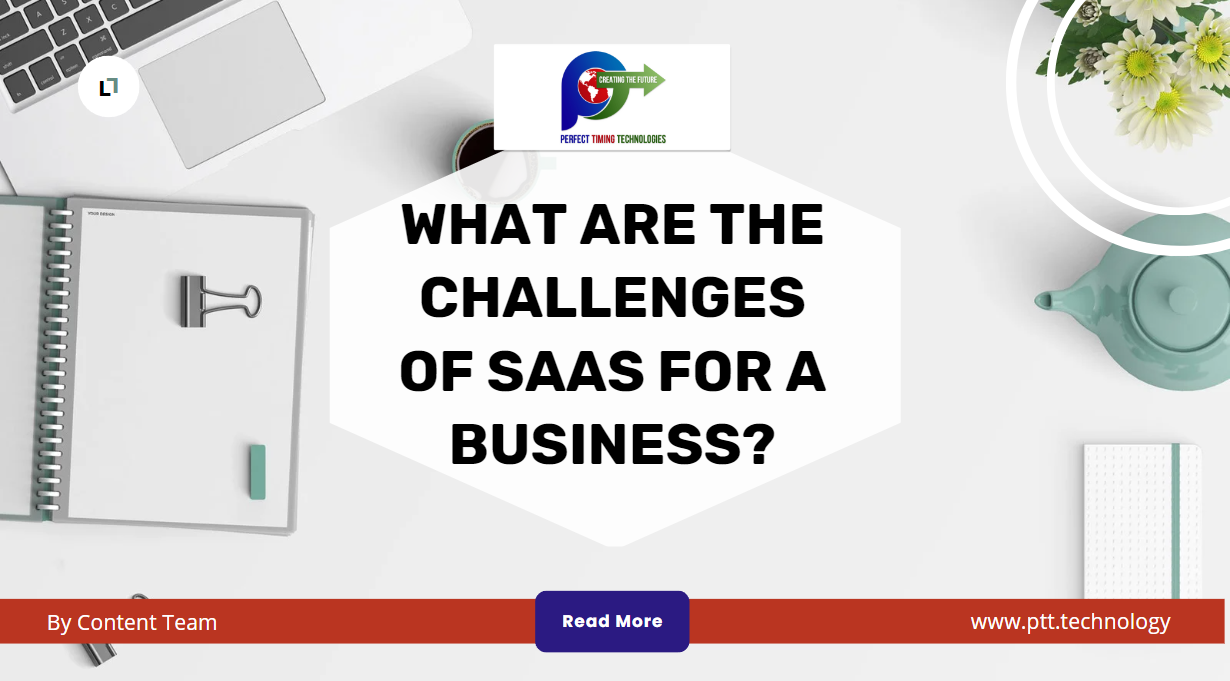
SaaS or Software as a Service refers to a software delivery model in which software is hosted remotely by a vendor or service provider and made available to customers over the Internet. This model is also known as on-demand software or cloud-based software.
In the SaaS business model, customers typically pay a subscription fee to access the software hosted and maintained by the vendor. The customers do not need to install and maintain the software themselves. All SaaS updates and maintenance are handled by the vendor.
SaaS has various business applications such as customer relationship management (CRM), human resources management (HRM), and enterprise resource planning (ERP). It is for personal productivity tools like email, document editing, and project management.
Despite many advantages, SaaS also brings several challenges for businesses using it. Every new company that uses SaaS comes across various challenges it must overcome.
Common Challenges faced by SaaS Businesses
The challenges faced by SaaS businesses can be categorized into the following-
Sales-Related Challenges: Sales are critical for SaaS companies, as they rely on recurring subscription revenue to grow and succeed. Some of the sales challenges faced by SaaS companies are as follows-
- SaaS sales cycles can be long and complex as customers need time to evaluate the software and determine if it meets their needs. Moreover, there may be multiple decision-makers involved in the buying process.
- SaaS products can be complex, with many features and capabilities. It can be challenging to communicate the value of the software and differentiate it from the competitor.
- Product Pricing is a critical factor in SaaS sales. It might be challenging to find an appropriate pricing model and price point that meets customer needs while generating sufficient revenue for the company.
- SaaS companies need to be able to scale their sales operations as their customer base grows. It requires a significant investment in sales and marketing, and it is challenging to manage and optimize these efforts.
- SaaS sales often occur remotely, without the benefit of face-to-face interaction. It makes it more challenging to build relationships with customers and establish trust.
Growth-Related Challenges: SaaS businesses have become increasingly popular in recent years, with the rise of cloud computing and the demand for subscription-based software solutions. While SaaS businesses also face several growth-related challenges, including:
- SaaS companies need to attract new customers to grow their business. It requires significant investments in developing a solid brand and reputation in the industry.
- Once a customer is acquired, the challenge is to keep them engaged and satisfied with the product or service. It requires ongoing improvements and updates to the software, excellent customer service, and a focus on user experience.
- As SaaS companies grow, they must ensure their software can scale to handle the increased demand. Companies must invest in infrastructure, technology, and talent to support their growth.
- With the increasing popularity of SaaS businesses, the market is becoming more competitive. Companies must differentiate by offering unique features, excellent customer service, and innovative solutions to stay ahead of their rivals.
- SaaS businesses often require a significant upfront investment in technology and talent. The best funding model, whether venture capital, bootstrapping, or a combination of both, is critical to their success.
Technical Problems: SaaS business models deliver software solutions through the Internet, which makes them susceptible to various technical problems. Some of the common technical challenges for SaaS businesses are-
- SaaS businesses must ensure that their solutions integrate seamlessly with other software and services that their customers use. It requires building APIs and ensuring data transfer is finished easily between different systems.
- SaaS businesses must ensure that their services are reliable and available to customers. It needs implementing redundancy measures, such as backup servers and monitoring systems to detect and fix issues quickly.
- SaaS businesses must ensure their solutions are compatible across different devices and operating systems. It requires testing and compatibility checks for various devices and platforms.
- SaaS businesses must ensure their solutions perform well and deliver a good user experience. It necessitates optimizing code and using efficient algorithms to reduce latency and improve response times.
Security-Related Challenges: SaaS businesses face various security challenges due to the nature of their business model. They must protect their customers’ data against various cyber threats. Some of the security challenges faced by SaaS businesses include-
- SaaS businesses store large amounts of customer data including sensitive information such as login credentials, personal information, and payment details. Data breaches can be disastrous, leading to the loss of customers, reputational damage, and legal liabilities.
- SaaS businesses are vulnerable to various cyber attacks, including malware, phishing, and ransomware attacks. Hackers can exploit vulnerabilities in the software to gain unauthorized access to customer data or disrupt the services.
- SaaS companies must comply with data privacy regulations such as GDPR, CCPA, and HIPAA. Failure to comply can result in significant fines and legal consequences.
- SaaS companies often rely on third-party providers for various services, like hosting, payment processing, and customer support. These third-party providers can introduce additional security risks, such as data breaches or cyber-attacks.
- SaaS businesses must ensure the security of their software applications, including the code, APIs, and user interfaces. It requires implementing secure coding practices and regular testing to detect and fix vulnerabilities.
Final Thoughts
SaaS businesses face many challenges, but with the right strategy and approach, they can overcome these obstacles and continue to grow and thrive in a rapidly evolving market.
SaaS businesses must be vigilant in addressing technical challenges to deliver high-quality solutions that meet customer expectations.
SaaS businesses must take a proactive approach to security, implementing robust security measures to protect their customers’ data and ensure the integrity and availability of their services. By addressing these security challenges, SaaS businesses can build trust with their customers and maintain a competitive edge in the market.







